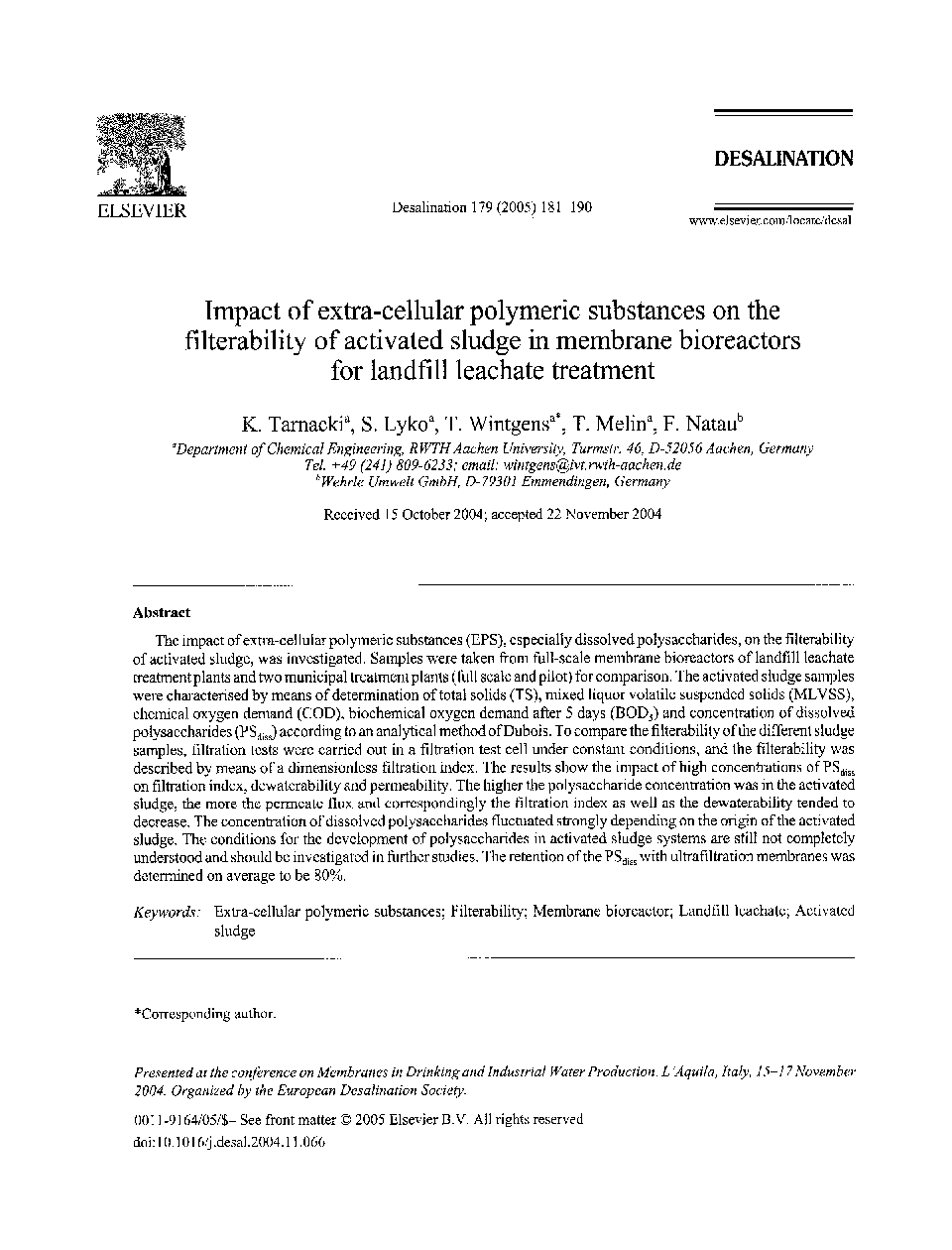| Article ID | Journal | Published Year | Pages | File Type |
|---|---|---|---|---|
| 9681102 | Desalination | 2005 | 10 Pages |
Abstract
The impact of extra-cellular polymeric substances (EPS), especially dissolved polysaccharides, on the filterability of activated sludge, was investigated. Samples were taken from full-scale membrane bioreactors of landfill leachate treatment plants and two municipal treatment plants (full scale and pilot) for comparison. The activated sludge samples were characterised by means of determination of total solids (TS), mixed liquor volatile suspended solids (MLVSS), chemical oxygen demand (COD), biochemical oxygen demand after 5 days (BOD5) and concentration of dissolved polysaccharides (PSdiss) according to an analytical method of Dubois. To compare the filterability of the different sludge samples, filtration tests were carried out in a filtration test cell under constant conditions, and the filterability was described by means of a dimensionless filtration index. The results show the impact of high concentrations of PSdiss on filtration index, dewaterability and permeability. The higher the polysaccharide concentration was in the activated sludge, the more the permeate flux and correspondingly the filtration index as well as the dewaterability tended to decrease. The concentration of dissolved polysaccharides fluctuated strongly depending on the origin of the activated sludge. The conditions for the development of polysaccharides in activated sludge systems are still not completely understood and should be investigated in further studies. The retention of the PSdiss with ultrafiltration membranes was determined on average to be 80%.
Related Topics
Physical Sciences and Engineering
Chemical Engineering
Filtration and Separation
Authors
K. Tarnacki, S. Lyko, T. Wintgens, T. Melin, F. Natau,
